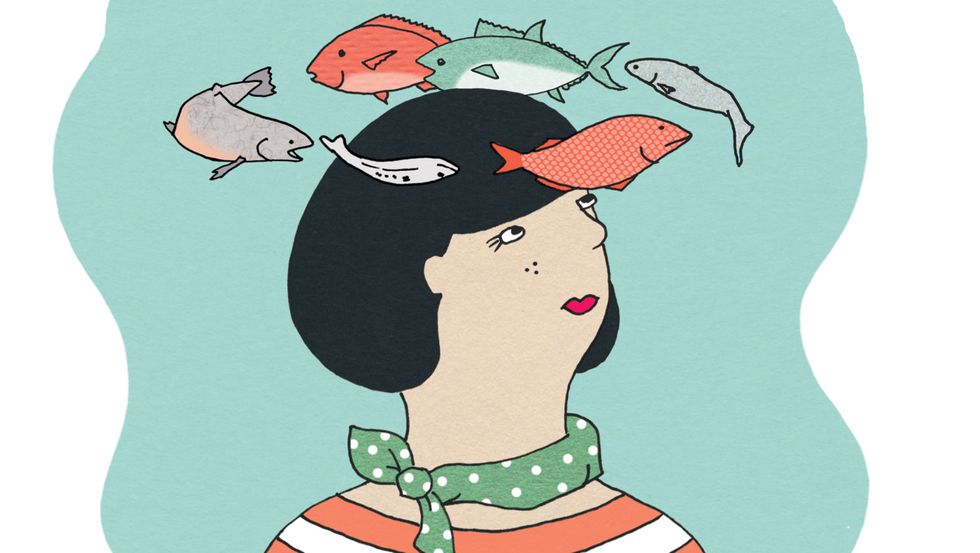Every month, Women’s Health asks a panel of experts your biggest questions on nutrition, health, and everything between. Below, Keri Glassman, R.D., founder of NutritiousLife.com and author of The New You (and Improved!) Diet, answers the following: “I loathe the taste of all fish and seafood, so I’ve eaten maybe three bites in my whole life. Is my brain shriveling up?”
Don’t panic. Responsible vegans, people who are healthy eaters with a varied diet, and people who live in a part of the world where there isn’t much fish available but who eat nuts and seeds are probably doing just fine—you can get the brain-boosting nutrients found in fish from other sources.
Specifically, fish contains omega-3s and vitamin D. Omega-3s, which are essential fatty acids that our bodies can’t produce and must come from our diet, help control mood and cognition, as well as help prevent brain conditions like Alzheimer’s. They are also anti-inflammatory and therefore work to protect against heart disease.
You can also get omega- 3s from walnuts, flaxseeds, chia seeds, or supplements. Vitamin D—which regulates mood, fatigue, and bone health and supports your immune system—can also be found in egg yolks and fortified foods such as milk. Still, the advantage of just adding fish to your diet is that it contains all those nutrients in one shot—and they’re naturally occurring and present in generous amounts.
So you can probably guess what I’m going to say next: It’s time for you to try fish again! Your taste buds change as you age, and you may find you like it now.
I’m not saying that you have to slurp down raw oysters or eat oily, fishy fish like mackerel or cod. You can start with baby steps: a mild, flaky white fish like branzino or flounder, or a piece of grilled salmon for a nice charred flavor. Cook your fish the whole way through for a more palatable texture, or toss it in breadcrumbs and Parmesan. People who don’t like other seafood often enjoy shrimp. You may discover a whole new world of flavors you love!












